Related Research Articles
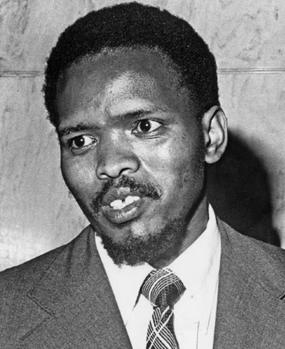
Bantu Stephen Biko OMSG was a South African anti-apartheid activist. Ideologically an African nationalist and African socialist, he was at the forefront of a grassroots anti-apartheid campaign known as the Black Consciousness Movement during the late 1960s and 1970s. His ideas were articulated in a series of articles published under the pseudonym Frank Talk.
The Black People's Convention (BPC) was a national coordinating body for the Black Consciousness movement of South Africa. Envisaged as a broad-based counterpart to the South African Students' Organisation, the BPC was active in organising resistance to apartheid from its establishment in 1972 until it was banned in late 1977.

The Azanian People's Organisation (AZAPO) is a South African liberation movement and political party. The organisation's two student wings are the Azanian Students' Movement (AZASM) for high school learners and the other being for university level students called the Azanian Students' Convention (AZASCO), its women's wing is Imbeleko Women's Organisation, simply known as IMBELEKO. Its inspiration is drawn from the Black Consciousness Movement inspired philosophy of Black Consciousness developed by Steve Biko, Harry Nengwekhulu, Abram Onkgopotse Tiro, Vuyelwa Mashalaba and others, as well as Marxist Scientific Socialism.
The Black Consciousness Movement (BCM) was a grassroots anti-Apartheid activist movement that emerged in South Africa in the mid-1960s out of the political vacuum created by the jailing and banning of the African National Congress and Pan Africanist Congress leadership after the Sharpeville Massacre in 1960. The BCM represented a social movement for political consciousness.
[Black Consciousness'] origins were deeply rooted in Christianity. In 1966, the Anglican Church under the incumbent, Archbishop Robert Selby Taylor, convened a meeting which later on led to the foundation of the University Christian Movement (UCM). This was to become the vehicle for Black Consciousness.
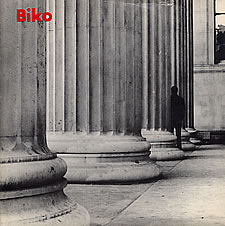
"Biko" is an anti-apartheid protest song by English rock musician Peter Gabriel. It was released by Charisma Records as a single from Gabriel's eponymous third album in 1980.
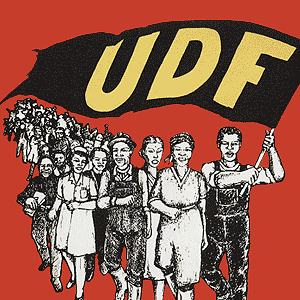
The United Democratic Front (UDF) was a South African popular front that existed from 1983 to 1991. The UDF comprised more than 400 public organizations including trade unions, students' unions, women's and parachurch organizations. The UDF's goal was to establish a "non-racial, united South Africa in which segregation is abolished and in which society is freed from institutional and systematic racism." Its slogan was "UDF Unites, Apartheid Divides." The Front was established in 1983 to oppose the introduction of the Tricameral Parliament by the white-dominated National Party government, and dissolved in 1991 during the early stages of the transition to democracy.
The South African Students' Organisation (SASO) was a body of black South African university students who resisted apartheid through non-violent political action. The organisation was formed in 1969 under the leadership of Steve Biko and Barney Pityana and made vital contributions to the ideology and political leadership of the Black Consciousness Movement. It was banned by the South African government in October 1977, as part of the repressive state response to the Soweto uprising.
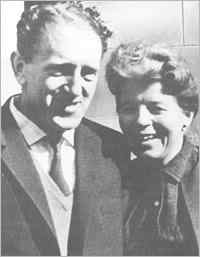
Lionel "Rusty" Bernstein was a Jewish South African anti-apartheid activist and political prisoner. He played a key role in political organizations such as the South African Communist Party (SACP) and the African National Congress (ANC). He helped form the South African Congress of Democrats to bolster white participation in the ANC, and he brought its allies together to establish a Congress of the People, working closely with Nelson Mandela.

Donato Francisco Mattera, better known as Don Mattera, was a South African poet and author.
Nigel Gibson is a British activist, a scholar specialising in philosophy and author whose work has focussed, in particular, on Frantz Fanon. Edward Said described Gibson's work as "rigorous and subtle". He has been described as a leading figure in Fanon scholarship.
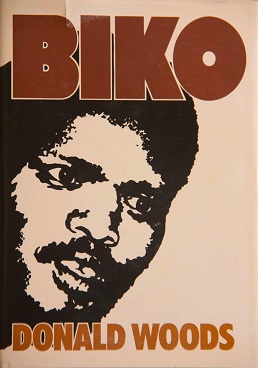
Biko is a biography about Black Consciousness Movement leader and anti-apartheid activist Steve Biko. It was written by the liberal white South African journalist Donald Woods, a personal friend of Biko. Donald Woods was forced into exile for attempting to expose the truth surrounding Biko's death. It was the inspiration for the 1987 film Cry Freedom.
Bruce Douglas Haigh was an Australian political commentator and diplomat. He joined the Australian Department of Foreign Affairs in 1972 and served in South Africa.
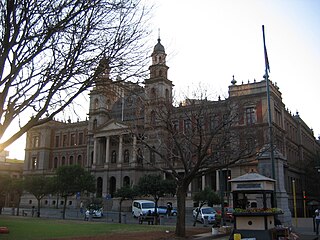
The Delmas Treason Trial was heard in the Supreme Court of South Africa from 16 October 1985 to 18 November 1988. In one of the lengthiest political trials in South African history, the apartheid state pursued treason charges against 22 activists for their alleged role in instigating the 1984 Vaal uprising in the Vaal Triangle. The trial led to the conviction of Moses Chikane, Mosiuoa Lekota, Popo Molefe, and Tom Manthata on treason charges, and seven others were convicted of terrorism.

Internal resistance to apartheid in South Africa originated from several independent sectors of South African society and took forms ranging from social movements and passive resistance to guerrilla warfare. Mass action against the ruling National Party (NP) government, coupled with South Africa's growing international isolation and economic sanctions, were instrumental in leading to negotiations to end apartheid, which began formally in 1990 and ended with South Africa's first multiracial elections under a universal franchise in 1994.

The apartheid regime in South Africa began in 1948 and lasted until 1994. It involved a system of institutionalized racial segregation and white supremacy, and placed all political power in the hands of a white minority. Opposition to apartheid manifested in a variety of ways, including boycotts, non-violent protests, and armed resistance. Music played a large role in the movement against apartheid within South Africa, as well as in international opposition to apartheid. The impacts of songs opposing apartheid included raising awareness, generating support for the movement against apartheid, building unity within this movement, and "presenting an alternative vision of culture in a future democratic South Africa."
The potato boycott of 1959 was a consumer boycott in Bethal, South Africa during the Apartheid era against slave-like conditions of potato labourers in Bethal, Transvaal. The boycott started in June 1959 and ended in September 1959. Prominent figures of the movement included Gert Sibande, Ruth First, Michael Scott and Henry Nxumalo.
Christine Douts Qunta is a South African writer, lawyer and entrepreneur. She has served on several public and private boards, and her work in various fields has been described as being "held together by the quest for a more just and free society." She was an activist in the anti-apartheid Black Consciousness Movement (BCM) during the 1970s and spent 17 years in exile, studying and practising law in Australia, Botswana and Zimbabwe, before returning to South Africa in 1993.

Devikarani Priscilla Sewpal Jana was a South African human rights lawyer, politician and diplomat. As a member of the African National Congress (ANC) during the anti-apartheid movement, she participated in both legal activism as well as in the underground movement to end apartheid. She represented many significant figures in the movement, including South African president Nelson Mandela, Winnie Madikizela-Mandela, Steve Biko, Govan Mbeki, Walter Sisulu, and Archbishop Desmond Tutu. Jana was one of the very few South Africans who had access to political prisoners, including Mandela, in the maximum security Robben Island prison, and served as an emissary for coded messages between the political prisoners and the ANC leadership.
Aubrey Dundubela Mokoena was a South African politician and former anti-apartheid activist. He represented the African National Congress (ANC) in the National Assembly from 1994 to 2014, excepting a brief hiatus in 2009. He served the Gauteng constituency and chaired the Portfolio Committee on Home Affairs from 1999 to 2002.
Thomas Madikwe Manthata was a South African activist who was active in the anti-apartheid movement. After the end of apartheid, he served as a member both of the Truth and Reconciliation Commission and of the South African Human Rights Commission.
References
- ↑ David Smith (31 December 2009). "Ghosts of South African prison tell what apartheid really meant". The Guardian.
- ↑ Clarke's Bookshop, 2014 Catalogue 123, p. 33.
- 1 2 "Molefe Pheto", South African History Online, 20 January 2017.
- ↑ John Peffer, Art and the End of Apartheid, Volume 2, University of Minnesota Press, 2009, p. 73.
- ↑ Peter O. Stummer and Christopher Balme (eds), Fusion of Cultures?, Cross/Cultures 26, ASNEL Papers 2, Rodopi, 1996, p. 186.
- ↑ Sue Blaine, "Apartheid revisited, for a better future", Business Day Live, 4 October 2012, via The Atlantic Philanthropies.
- ↑ Wits Oral History Interviews, 20 April 2011.
- ↑ Moji Mokone, "Book reviews : And Night Fell: memoirs of a political prisoner in South Africa", Race & Class , October 1984, vol. 26, no. 2 103–104.
- ↑ William F. Schulz (15 May 2007). The Phenomenon of Torture: Readings and Commentary. University of Pennsylvania Press. ISBN 978-0812219821.
- 1 2 Phumla Mkize, "Story of a freedom not yet realised", Sowetan, 2 May 2014, via PressReader.
- ↑ Jane Rosenthal, "Exile's bullish reconnection with his ancestral land", Mail & Guardian, 17 April 2014.